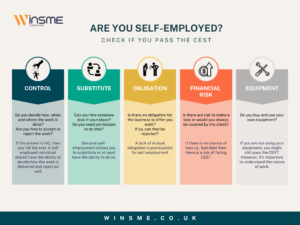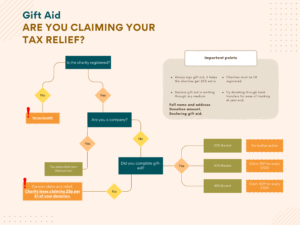As the holiday season approaches, showing appreciation for your employees or even yourself, as a sole trader, is essential. HMRC provides opportunities to do this through the use of trivial benefits and the £150 tax-free spending allowance for annual or Christmas parties. Here’s how to make the most of these options whether you run a small business or are self-employed.
Understanding Trivial Benefits
For Small Businesses
Trivial benefits are small perks or gifts given to employees that are exempt from tax and National Insurance, provided they meet specific criteria:
- Cost Limitation: Each benefit must not exceed £50.
- Non-Cash Nature: The benefit cannot be cash or a cash voucher.
- Not a Reward: The benefit cannot be given as a reward for work or performance.
- Non-Contractual: The benefit cannot be part of the employee’s contractual entitlement.
Examples:
- Store gift cards within the £50 limit
- Flowers, chocolates, or small seasonal gifts like Christmas hampers
Including Family Members: While trivial benefits are primarily designed for employees, they can sometimes extend to family members if the employer chooses. For instance, a gift given to an employee that benefits their family (like a family cinema voucher) could qualify as a trivial benefit, as long as it meets the criteria.
The £150 Tax-Free Allowance for Annual Events
Under HMRC’s rules, employers can spend up to £150 per head each tax year on annual events, such as Christmas parties, without the employees being taxed. This allowance can cover the total cost of the event, including food, drinks, accommodation, and transportation.
Key Points:
- Per Head Limit: The £150 limit is inclusive of VAT and applies per head, so you can include employees’ family members in the total guest count.
- Multiple Events: You can spread this allowance across multiple events, provided the total cost does not exceed £150 per person per year.
- Tax Implications: If the cost per head exceeds £150, the entire amount becomes taxable, not just the excess.
For Sole Traders and the Self-Employed Trivial Benefits
The trivial benefits exemption does not apply to sole traders and self-employed individuals in the same way it does for employees. While you can give yourself gifts, these would not be exempt under the trivial benefits rule and could be considered as personal expenses.
Examples:
- Small gifts bought for personal enjoyment, though these cannot be claimed as business expenses.
The £150 Tax-Free Allowance for Annual Events
The £150 tax-free allowance for annual events, such as Christmas parties, primarily applies to employees. However, if a sole trader hosts a business event, including clients or associates, the costs could be considered business expenses if they are wholly and exclusively for business purposes.
Key Points:
- Personal Expenses: Any spending on parties or gifts for yourself as a sole trader would generally be considered personal and not allowable as a business expense.
- Business-Related Entertainment: If the event includes business clients or associates and is genuinely for business purposes, it may be considered an allowable business expense.
Combining Benefits for Maximum Impact
By strategically using both trivial benefits and the tax-free allowance for annual events, small businesses can enhance employee morale, and sole traders can engage in business-related festivities without incurring additional tax liabilities.
Practical Ideas for Small Businesses:
- Festive Celebrations: Use the £150 tax-free allowance to host an unforgettable Christmas party, covering all aspects from the meal to entertainment and transportation.
- Thoughtful Gestures: Throughout the year, surprise your team with small, meaningful gifts that qualify as trivial benefits. A £50 gift card or a festive hamper can go a long way in showing appreciation.
Always consult your accountant if unsure.









